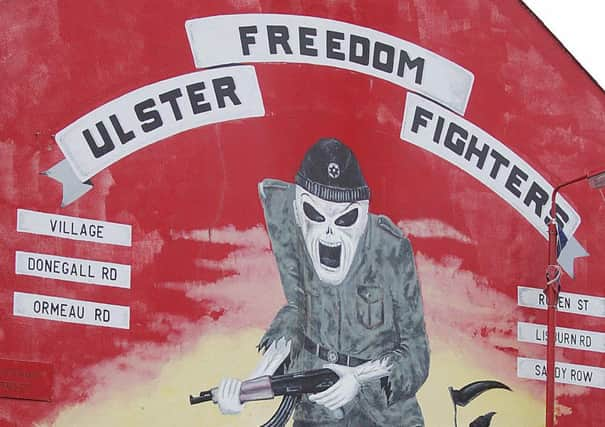Red Cross explains work after funding for UDA-linked group emerges


The Resolve project is described as a “restorative justice” scheme, and arose in late 2014 out of work that was being done with UDA prisoners.
A report about the Resolve project was published on Thursday by a body called Criminal Justice Inspection Northern Ireland (CJINI).
Advertisement
Hide AdAdvertisement
Hide AdThis body (funded by the Department of Justice) must assess such projects before they become eligible for public money.
Resolve’s work is concentrated mainly in east Belfast and involves trying to assist people who are under paramilitary threat, mediating in neighbourhood disputes, and tackling anti-social behaviour, with the aim of focussing on neighbourhoods “associated with the UDA”.
One of the facts contained within the CJINI report was that the ICRC was the sole funder of Resolve, providing £37,000 per year.
The ICRC (one of the arms of the world-wide movement that encompasses the British Red Cross) was asked to set out its reasons for the funding.
Advertisement
Hide AdAdvertisement
Hide AdIn a statement, which did not specifically mention Resolve, it said: “The objectives of the ICRC in Northern Ireland are to try to address, in a neutral and impartial manner, the humanitarian consequences and needs arising from violence.
“We interact with individuals and groups across society - our activities are strictly humanitarian and are not limited to any particular section of the community.”
It said that the group aims to take “no stand on the causes of violence in Northern Ireland”, and that it works with around 12 organisations across the Province “that seek to prevent and mitigate ongoing violence affecting the population through mediation and restorative justice”.